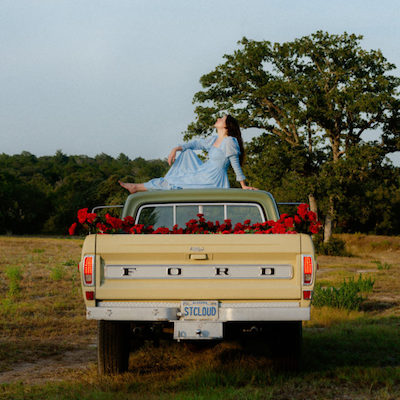
Secret Meeting score: 90
by Phil Scarisbrick
It often seems to be the case that when people are writing positively about an artist, they often prefix their name with ‘there is only one’. This arbitrary description could also be used to describe even the most moribund tripe clogging up the airwaves. This being the case, I will refrain from using that with Tom Waits, although he fits the implied description more than almost anyone else. Forty-five years ago, he released his debut album Closing Time. While the rest of his career would contain many left-turns and surprises, it gave us our first small glimpse through the peep-hole of the moonshine, bootleg bars that his characters inhabit.
Drenched in whiskey and the foggy aroma of tobacco, Waits plays the part of a lounge singer in the last dive bar in town. You can picture him crouched over a worn out piano, with a worn out suit and worn out trilby hat. A fading Marlboro red cigarette hanging from his mouth, he places his liqueur on top of the piano and starts to play. For all this bleak imagery, the music we hear is utterly beautiful. There is a quote often attributed to Waits where he says, “I like beautiful melodies telling me terrible things.” Closing Time fits this description perfectly.
Kicking off with the album’s only single, Ol’ 55 sets the tone with its description of an early hours drive, still high on coital joy. The song’s piano-driven soundtrack builds to a chorus full of vocal harmonies, with Waits proclaiming “Now the sun’s comin’ up/And I’m riding with Lady Luck/Freeway, cars and trucks/Stars beginning to fade, and I lead the parade.” His masterful use of imagery on full display right from the off. The song is also one of Waits’ most covered pieces with notable versions recorded by The Eagles, Fairport Convention’s Iain Matthews and Sarah McLachlan.
I Hope That I Don’t Fall In Love With You is a tragic tale of a man so diminished by heartbreak that he shies away from it. As his eyes meet a girl’s at the bar, he fantasises romantic dreams before letting his past experiences stop him from taking the leap. The vibrant, finger-picked guitars underpin Waits’ lullaby-esque melody for one of the most beautiful, yet heartbreaking moments on the record. His delivery feels like an inner-monologue, too close to home to just be another character as he sings “I turn around to look at you/And you light a cigarette/I wish I had the guts to bum one/But we’ve never met.”
Old Shoes (& Picture Postcards) once again sees our narrator struggling to face up to what he wants. The chorus sees him lying to the target of his affection, and shows his inner turmoil “So goodbye, so long, the road calls me, dear/And your tears cannot bind me anymore/And farewell to the girl with the sun in her eyes/Can I kiss you, and then I’ll be gone.” He tells her it is one final kiss before he’s gone, but he hopes that it will be enough to force himself to stay.
Midnight Lullaby uses familiar lullaby lyrics to help the target of his affection get to sleep. He paints a scene where the world in dreams is superior to the one in which we live as a comfort to them. Again, you feel he is talking to himself as much as the girl. This over-arching theme is present again on Lonely. Here he exposes his own inner-demons. “And I thought that I knew all that there was to/Lonely, lonely, lonely eyes, lonely eyes/lonely lonely in your place/and I still love you, I still love you, lonely, lonely.” Conceding that he is lonely and only has himself to blame.
The finest song on the record lies right at the centre. Martha is a long distance phone call to a long-lost love, in which he lays his heart bare about their past relationship and his current marriage.There is a poignancy in the regrets and what-might-have-beens reflected here by a narrator entering the later years of their life. That Waits wrote it while only 24 makes it even more remarkable. In a world where anybody is just a click away, this track chronicles a time when you could quite easily lose touch with someone you cherish as time runs out, destined to never have the opportunity to unveil your affection. “Martha, Martha, I love you can’t you see.” The final desperate plea as the narrator finally gets to express his love for the one he left behind.
Rosie sees our narrator dealing with the aftermath of being left behind. Using visceral imagery with “Apricot tips in an indigo sky”, the song sees him desperately trying to figure out what went wrong, and how he can fix it. “And I’ve been loving you, Rosie/Since the day I was born/And I’ll love you, Rosie ’til the day I die/Rosie, why do you evade? Rosie/How can I persuade? Rosie”, he sings as he searches for answers. The cruelty of heartbreak on display, but also its selfishness.
Tom Waits was reticent to talk about his early 70’s work for a long time, but he always was a forward thinking artist. Closing Time was the world’s introduction to a unique artist whose world view is soaked in dark humour, barroom banter, self-consciousness and a lonely melancholy. As the mainly instrumental title track closes the album, Waits announces, “Okay, let’s do one for posterity” you imagine the dishevelled bar room crooner closing the lid on the battered piano, finish his whiskey and head out alone into the night. The weight of the world on his shoulders lifted for 45 minutes of beautiful music, now returning as the door shuts behind him. Back into the real world. Nobody is more lonely than a drunk at closing time. But there is a pristine beauty to this loneliness, or at least there is in the world presented through Tom Waits’ young eyes.



